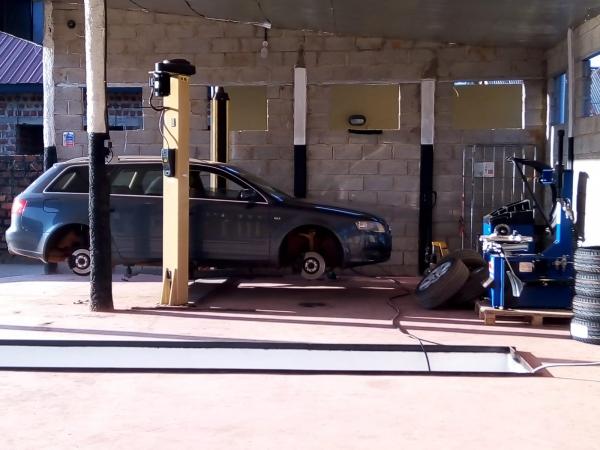A well functioning break is a vital part of the car and road safety which may result in loss of life and property. Delaying your car brake service or repair possesses a threat to you and others.
When you sense something is off with your brake, contact FixnRev Mechanics for a quick check-up to rest the claim of something being damaged or broken.
From squeaky noise to stickiness, your brake shows many signs before failing. Recognize these and come for an early in-depth check-up at the nearest car service centre and let our expert technicians do the rest. Whether it is a brake pad issue, or the discs and calliper need a replacement, our car service centre can do this quickly enough to return your car the same day.
How does the brake work?
The general notion is putting your foot on the brake to make it haul, but the mechanism that makes it possible is a little more complicated than that.
The brake in your car works through a hydraulic system which makes use of the brake fluid for smooth functioning.
Once you press on the brake pad, the leverage force launches a piston into the brake cable which in turn directs the brake fluid through the cable. This whole interconnected system leads to a piston being pushed at the other end, which eventually provides the friction needed to stop the wheel and therefore, your vehicle.
Why does your brake fail?
As with any other car part, a brake also gets worn out in the process of usage. There may be a leakage which leads to weaker or failed brakes. Much like your car, your brake needs regular servicing to make up from the wear and tear of brakes and components part. It may deteriorate quickly if you use your car regularly on long journeys. A part of your brake life is also owed to proper driving etiquettes.
Brake servicing is an essential and a must-do part of the routine since a little irresponsible behaviour can lead to much damage.
How often do brakes need to be serviced?
Brakes need to be replaced when they are worn out. However, in many cases, the brakes only need servicing to start performing optimally. In such cases, the brake components (cleaning, lubricating, etc.) are serviced without replacing. You should opt for regular service to make sure you're safe, not just on the road but for others as well.
There is no fixed time with servicing brakes but make sure if you go through any of the signs mentioned below. Generally, brake inspections are scheduled at regular mileage or intervals; typically every 5,000-7,000 miles or every 4-6 months, whichever comes first.
Look out for these signs:
Brake Issues are usually difficult to identify but here are some indicative signs that you should look out for in your braking system.
Brake pads are designed to last thousands of miles but need replacement once they reach their optimal usage. Grinding noise when brakes are applied is an indication of the brake pads being excessively worn and needing immediate replacing along with the brake discs. Brake discs make an important part of the braking system and help to slow down the car when you put your foot on the brake.
When the car pulls to the left or right, it usually means one of the mechanical or hydraulic components has seized or are sticking.
A pulsating feel from the brake pedals is indicative of a distorted brake disc or drum.
A spongy feeling from the pedals can mean that there is air in the hydraulic system due to a fluid leak.
Brake callipers are the most robust part of the brake system and may not need any replacement during the life of the car. However, being a very critical part of the system, it is important to have them replaced immediately when broken. Your car may indicate the need for calliper replacement with sounds or vibrations when applying the brakes.
Should you service the brakes or replace them?
This depends on how much the brakes have endured and their level of wear and tear. If they are in really bad shape, it would be more efficient to get them replaced rather than servicing them. Remember that brakes are a crucial part of your safety and you shouldn't compromise anything to make sure they're fully and completely functional.
How long do the brakes last before they need to be replaced?
Typically, disc brakes can last for around 30,000-50,000 miles with rear drum brakes having a longer life, up to 150,000 miles.
What do we provide?
If you're sceptical about the condition of your brakes, our trained and expert technician will help to identify any issues and guide and advise you on how to make the brake last longer.
FixnRev Mechanics provides a complete range of brake service and repair along with brake pad replacement, fitting service, brake line repair, etc. From your brake pads check, fitting, to fluid leakage, our expert guidance and technicians are ever ready to give a quick makeover to the brake.
Come in for a free check-up if you see any of the faulty symptoms and have your brake system inspected.
With Acton FixnRev Mechanics, your brake never fails.

